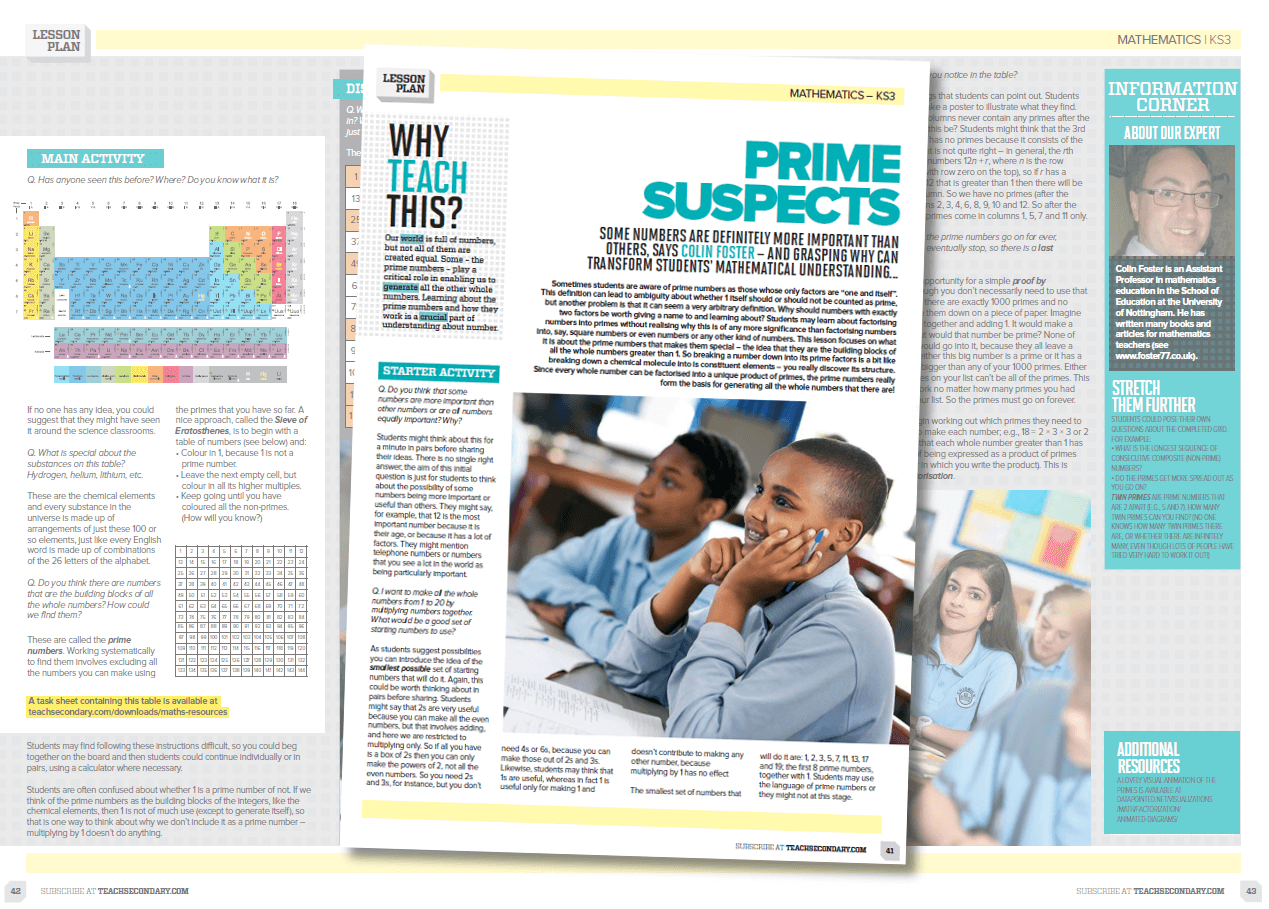Some numbers are definitely more important than others. This prime numbers KS3 lesson plan can help to transform students’ mathematical understanding…
Sometimes students are aware of prime numbers as those whose only factors are “one and itself”. This definition can lead to ambiguity about whether 1 itself should or should not be counted as prime.
Another problem is that it can seem a very arbitrary definition. Why should numbers with exactly two factors be worth giving a name to and learning about?
Students may learn about factorising numbers into primes without realising why this is of any more significance than factorising numbers into, say, square numbers or even numbers or any other kind of numbers.
This KS3 lesson focuses on what it is about the prime numbers that makes them special – the idea that they are the building blocks of all the whole numbers greater than 1.
So breaking a number down into its prime factors is a bit like breaking down a chemical molecule into is constituent elements – you really discover its structure.
Since every whole number can be factorised into a unique product of primes, the prime numbers really form the basis for generating all the whole numbers that there are.
Why teach this prime numbers KS3 lesson plan?
Our world is full of numbers, but not all of them are created equal. Some – the prime numbers – play a critical role in enabling us to generate all the other whole numbers.
Learning about the prime numbers and how they work in KS3 is a crucial part of understanding about number.
Colin Foster is an assistant professor in mathematics education in the School of Education at the University of Nottingham. He has written many books and articles for mathematics teachers. Browse more KS3 maths lesson plans.














